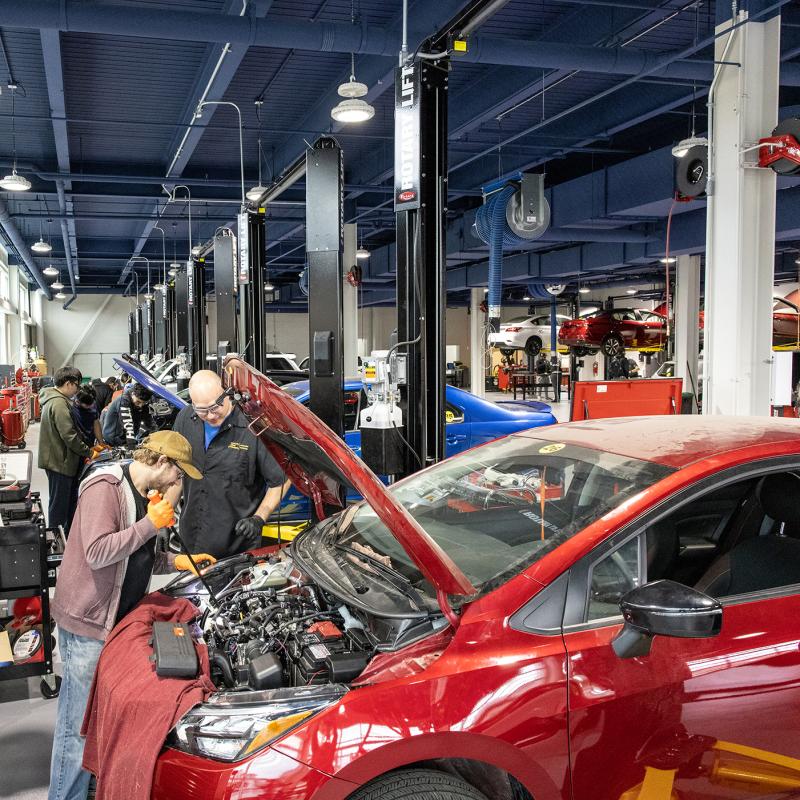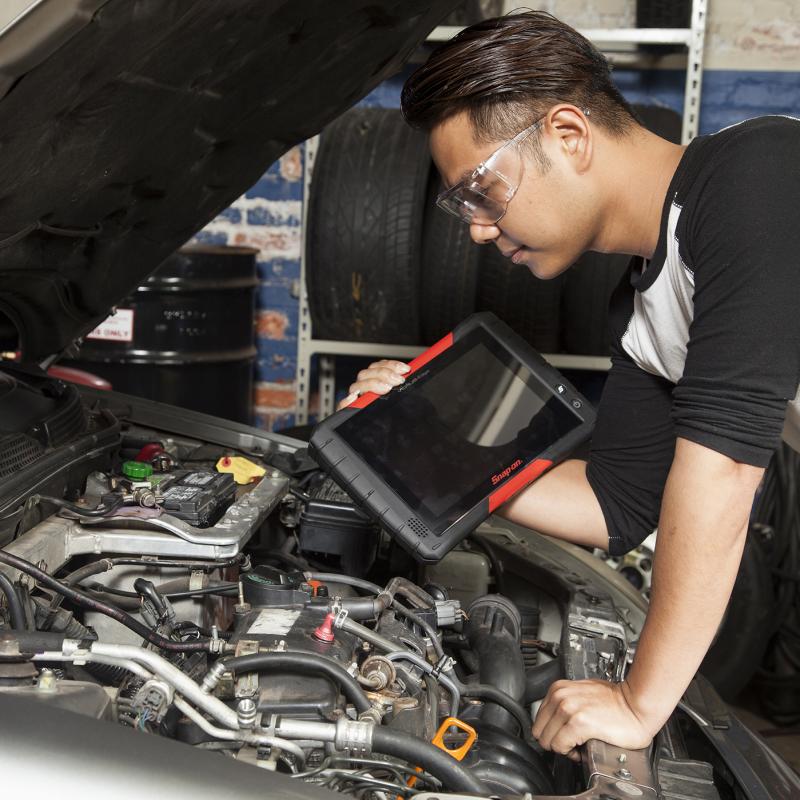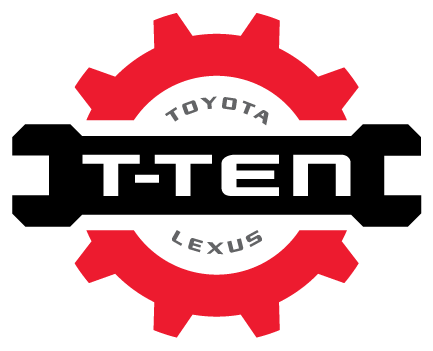-
Program Duration: 2 Year Program
-
Degree Type: Associate in Applied Science (A.A.S.)
-
Total Credit Hours: 70

About This Program
Begin working with the largest car manufacturer in the world while you complete your degree with this unique program—the only one offered in the region. As one of the first programs to be hosted at the brand-new Career and Advanced Technology Center, this opportunity is part of the College’s goal to set a new precedent for innovation in automotive education in Philadelphia.
Students will work through a specialized course sequence created in partnership with Toyota T-TEN (Technician Training and Education Network) which focuses on skills necessary for repairing Toyota and Lexus vehicles. With 640 hours of internship work included in the program’s graduation requirements, students will reach a skill level that would typically take five years to reach.
This selective program is only available to full-time students, and requires that students apply for admission to both the program and an internship with local a Toyota dealer. Students must be accepted to the internship with the local dealer to gain acceptance into the program. Applicants must currently hold a valid driver's license and pass a drug test.
Attention, women interested in auto tech, you're not alone! Did you know the College has specialized services to help women break into this high-paying field? Our faculty can help you access scholarships and community-based support.
Ready to take the first step? Visit our Women in Automotive Technology page today to see women like you, and get started in this rewarding career!

Launch Your Career with Toyota
- Automotive Body and Related Repairers – est. salary $54,644
- Automotive Engineering Technicians – est. salary $71,584
- Automotive Service Technicians and Mechanics – est. salary $52,325
Career Outlook
Median Salary of Maintenance and Repair Workers, General
Number of Jobs in the Region
10-year Job Outlook in the Region for Automotive Engineering Technicians
Automotive Engineering Technician
Perform routine maintenance, such as inspecting drives, motors, or belts, checking fluid levels, replacing filters, or doing other preventive maintenance actions.
Starting Pay: $37,177

Typical Tasks
- Inspect, operate, or test machinery or equipment to diagnose machine malfunctions.
- Repair machines, equipment, or structures, using tools such as hammers, hoists, saws, drills, wrenches, or equipment such as precision measuring instruments or electrical or electronic testing devices.
- Adjust functional parts of devices or control instruments, using hand tools, levels, plumb bobs, or straightedges.
- Order parts, supplies, or equipment from catalogs or suppliers.
- Design new equipment to aid in the repair or maintenance of machines, mechanical equipment, or building structures.
- Diagnose mechanical problems and determine how to correct them, checking blueprints, repair manuals, or parts catalogs, as necessary.
- Assemble, install, or repair wiring, electrical or electronic components, pipe systems, plumbing, machinery, or equipment.
- Maintain or repair specialized equipment or machinery located in cafeterias, laundries, hospitals, stores, offices, or factories.
Let's Get Started

